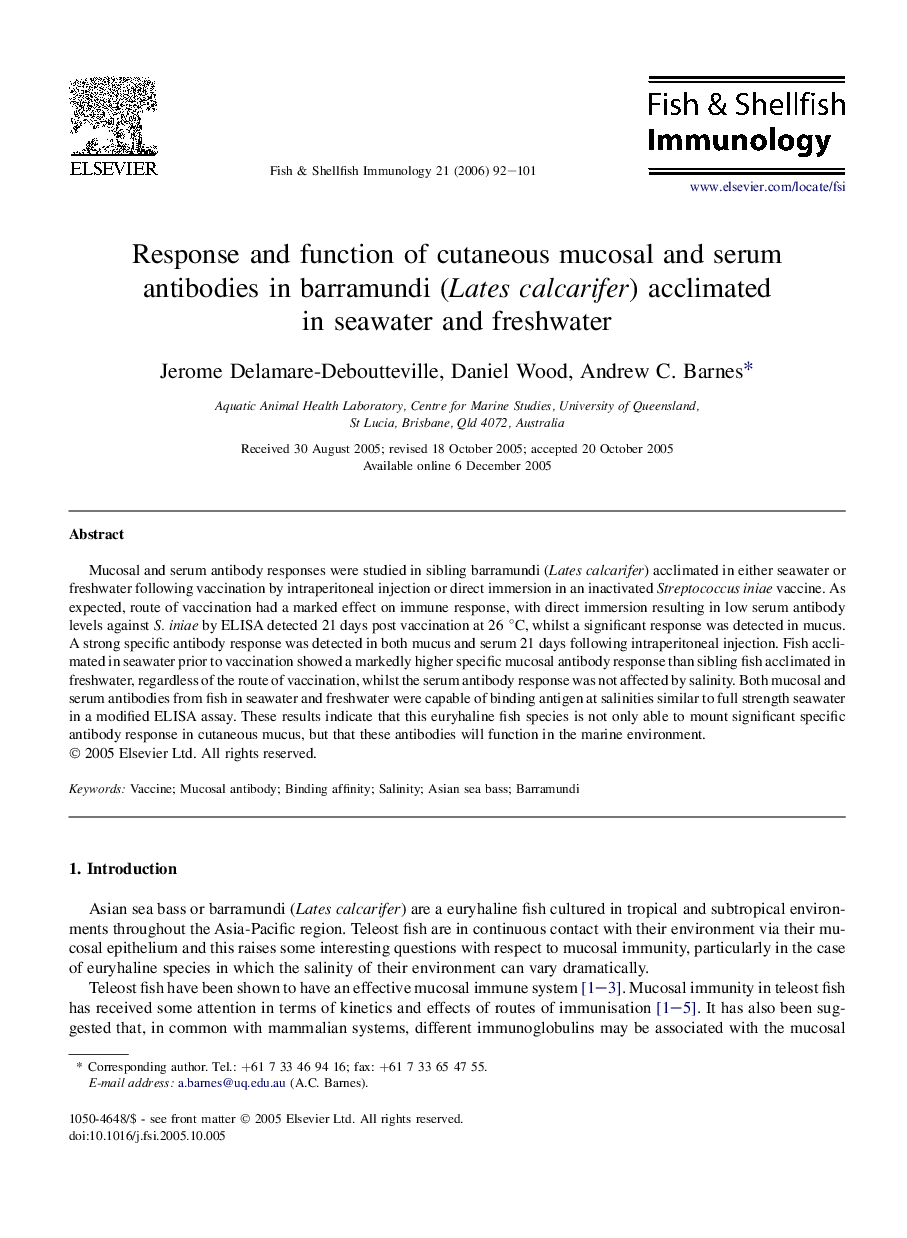| Article ID | Journal | Published Year | Pages | File Type |
|---|---|---|---|---|
| 2433746 | Fish & Shellfish Immunology | 2006 | 10 Pages |
Mucosal and serum antibody responses were studied in sibling barramundi (Lates calcarifer) acclimated in either seawater or freshwater following vaccination by intraperitoneal injection or direct immersion in an inactivated Streptococcus iniae vaccine. As expected, route of vaccination had a marked effect on immune response, with direct immersion resulting in low serum antibody levels against S. iniae by ELISA detected 21 days post vaccination at 26 °C, whilst a significant response was detected in mucus. A strong specific antibody response was detected in both mucus and serum 21 days following intraperitoneal injection. Fish acclimated in seawater prior to vaccination showed a markedly higher specific mucosal antibody response than sibling fish acclimated in freshwater, regardless of the route of vaccination, whilst the serum antibody response was not affected by salinity. Both mucosal and serum antibodies from fish in seawater and freshwater were capable of binding antigen at salinities similar to full strength seawater in a modified ELISA assay. These results indicate that this euryhaline fish species is not only able to mount significant specific antibody response in cutaneous mucus, but that these antibodies will function in the marine environment.
